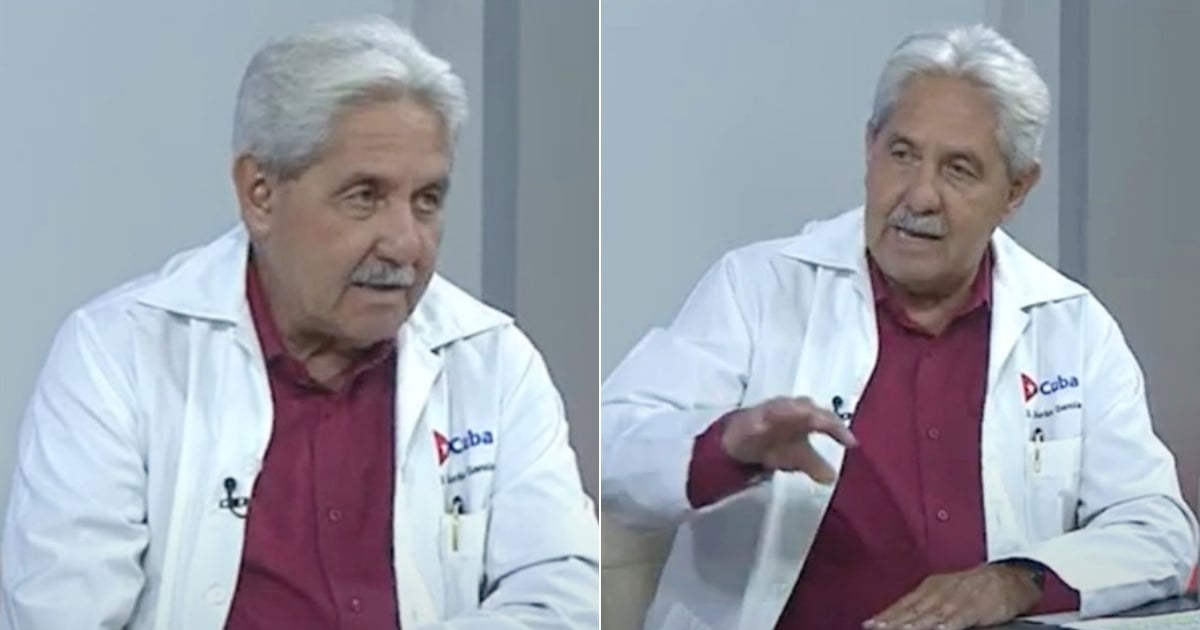Francisco Durán appears to be reporting on the dengue and Oropos virus crisis in Cuba.

Francisco Duran GarciaNational Director of the Department of Hygiene and Epidemiology, appeared this Wednesday on Cuban television to report the uncontrollable increase in the incidence of dengue and the Oropos virus in the country.
Durán García explained that dengue is still present in 13 provinces, but the number of municipalities is increasing: 45 and 50 health districts.
He clarified that a significant increase in incidence is observed mainly in Santiago de Cuba, Havana, Guantanamo and Camagüey. which he described as the hardest hit provinces so far.
The expert said there is “numerous cases recognized” with dengue in the country, of which he noted that some are in intensive care. In neither case did he provide figures.
As he said earlier, the epidemiologist recommended consulting a doctor at the first symptoms and once again emphasized that dengue is a disease that can be prone to complications.
In case Oropouche virus is transmitted in 15 provinces, 109 municipalities and 197 health care facilities.
There is also an increase in cases, although there are few complications with this disease, although Duran García said there are hospitalizations due to this virus.
He especially urged pregnant women to protect themselves from mosquito bites.since in countries such as Brazil there have been cases of “vertical transmission”, that is, from mother to fetus, which in some cases has led to fetal death or congenital malformations.
In general terms, Francisco Durán García admitted that there is currently a mosquito infestation in Cuba. “It’s very, very high”.
He mentioned factors that worsen the forecast, such as heat, rain and “unfortunately, the word “sanitation” is added, which needs to be mentioned and is of great importance”he said euphemistically, referring to the serious waste collection crisis affecting Havana and other provinces of the country.
Finally, Duran Garcia suggested that Cubans use “mosquito nets and repellents” as a way to avoid mosquito bites that cause both diseases.
Previously, Durán García stressed the need to immediately consult a doctor for any symptoms related to headaches, joint pain, vomiting, diarrhea and high fever, since an adequate diagnosis must be made due to the circulation of both arboviruses. with very similar symptoms.
A few days ago, Dr. Ileana Morales Suarez, Director of Science and Technological Innovation at MINSAP, noted that since May there have been about 12,000 suspected cases of Oropushsome of which showed neurological complications and clinical manifestations not previously described in the medical literature.
Health authorities have stressed the importance of maintaining a clean environment and eliminating mosquito breeding sites as key measures to prevent the spread of these vectors, although the regime has admitted it does not have the resources or fuel to carry out fumigation and control campaigns.
According to the newspaper, the Center for Immunoassay is currently trying to develop a diagnostic kit for Oropush, and the Finley Institute is evaluating the possibility of developing a vaccine to prevent the disease.
